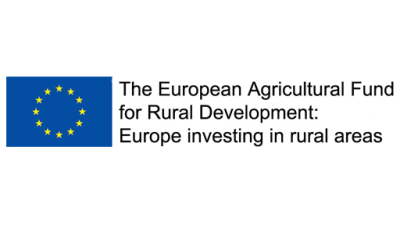Project
Maatilan biokaasutuotannon kannattavuuden parantaminen skaalaamalla in situ –metanointi pilotilta maatilamittakaavaan - Metanointi maatilalla -
Project sponsors
The project investigated the impact of methanation on the profitability of biogas production on a medium-sized farm. Various technological solutions, different types of farms, and different economic conditions, such as energy prices and construction costs, were used in the calculation models.
The project piloted in situ methanation, based on which methanation was scaled to a farm-scale biogas plant. The goal was to build a biogas plant with a methanation system as a parallel investment project on one farm.
The project updated the existing biogas pilot equipment to be suitable for a manure-feed mixture, optimized digestion parameters, and developed digestion control.
The communication goal of the project was to reach farms interested in biogas investment and to disseminate information about the economic and safety impacts of in situ methanation in a farm environment.
The project promoted the green economy in line with the objectives of the Rural Development Fund's recovery funds.
The Rural Innovation Group (EIP group) implementing the project included Paavola dairyfarm, BGCNordic Oy, and Jyväskylä University of Applied Sciences (Jamk). Jamk was the main implementer of the project.
For more information, please contact:
The project results were published on Jamk's channels, and links to the publications are compiled on this page. The publications are freely available. The estimated publication date is 31.12.2024.
Project results
Methanation on the Farm Project produced information on the profitability and safety of methanation in a farm environment. The project investigated methanation using a pilot-scale biogas plant. The experiments developed and tested the remote control of the biogas reactor process. The conducted digestion tests provided important practical observations on the suitability of methanation for the farm environment. The project also gained experience with the thermophilic digestion process in a farm-scale biogas plant at Paavola's dairy farm.
During the equipment updates, a level sensor, as well as pH, temperature, and conductivity sensors, were installed on the pilot-scale reactor to assist in monitoring the process, along with chemical pumps for adjusting the process with chemicals. The remote monitoring and logic of the reactor were also updated. The equipment updates were found to be sensible and facilitated process monitoring and work.
The actual methanation experiment was conducted in the fall of 2024. The start-up phase of the experiment lasted six weeks (2 x HRT), and the actual test run lasted three weeks (1 x HRT). The feedstock used was cattle slurry and grass silage. Hydrogen was fed into the reactor from the beginning of the start-up. The hydrogen feed was started cautiously with small amounts, and the maximum feed rate during the experiment was 14 liters per day. The hydrogen feed was stopped for a week after the test run and then restarted. The test period was short, and no definitive conclusions can be drawn from it, but the results show changes and trends. On average, 50 percent of the hydrogen fed was converted to methane during the observation period (test weeks 6-9). Methane production during the observation period was 62 percent. The methane concentration dropped immediately after stopping the hydrogen feed (week 9). Over a week and a half, the concentration decreased by 8 percent.
The observations made in the project do not encourage starting methanation in farm conditions, at least not in the manner used in the project's experiments. Methanation can be challenging in farm conditions and may also pose a safety risk. Hydrogen is an energy-dense, light, and thin gas with a wide flammability range. Gaseous hydrogen forms an explosive mixture with oxygen, which requires only a very small amount of energy to ignite. Therefore, extreme caution must be exercised when working with hydrogen, and the equipment used for hydrogen feeding must be in impeccable condition to prevent gas leaks. Care must also be taken with the hydrogen feed rates, and there should be no significant fluctuations in the feed. ATEX regulations must also be considered when dealing with explosive gases.
The increase in methane concentration achieved in the experiments was not significant enough to ensure sufficient profitability for the operation in farm conditions.
Updated January 8, 2025
Hankkeen tulokset julkaistaan Jamkin kanavilla ja linkit julkaisuihin kootaan tälle sivulle. Julkaisut ovat vapaasti saatavilla. Arvioitu julkaisupäivä on 1.3.2024.

